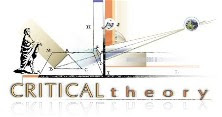"Once upon a time..." as so many stories begin -
Most people did NOT live in the suburbs. They did not have running water, gas furnaces, electric lights, dishwashers, televisions, garbage pickup, laundry facilities in the basement or utility room, fast-food joints on every corner, access to amazing medical techology, germ-free water, or a zillion other things which modern women and men simply take for granted. Life in general was a lot of work and, well, that is or was "life." It was pretty much the only game there was unless you chose death, which the world stood ready to deal you in thousands of different ways.
Rather than being made in "god's" garage with his power tools, humans have spent at least a couple of million years developing tool using capacity, so-called "intelligence", and that form of social organization we euphemistically call "civilization" despite the fact that it becomes less "civil" with each passing year.
Fairly early on, our clever ancestors learned that some ways of going about things worked better than others in assuring the surival of the tribe by maximizing the survival potential of the individual members - things like organization, cooperation, and division of labor. Being a species pretty poorly physically adapted to most environments, a fairly large percentage of our time and energy went into adapting the environment to our needs. Like everything alive, individuals valued their own lives pretty highly, but also recognized a certain value in survival of the tribe as a whole over any individual. The central survival factor of the tribe was fertility, and archeological evidence suggests that fertility was worshiped by every pre-technical people.
Like any good resource manager, our ancestors based their resource management strategy on the scarcest resource, not the most abundant. Therefore, the female contribution to fertility was considered far more valuable than the male contribution. As long as starvation was not emminent, the female ability to bring forth life was the most mystical and valuable thing possible. People worshipped it, and protected it at almost any cost. It made so much sense to leave any dangerous activity to men and protect the women from danger that these peoples would have likely regarded as insane or very evil the suggestion that anyone would do otherwise.
The best description of the development of culture that I have ever seen is by Anne McCaffrey in what has developed into the standard boilerplate introduction to her hugely successful "Dragonriders of Pern" series of novels.
"... people went about their separate tasks, and each developed habits that became custom, which solidified into tradition as incontrovertible as law."
Over time these traditions did, indeed, become codified into law as population density increased and the fact that human beings are not always perfect and sometimes act in selfish and destructive manners forced groups into adopting formal codes of conduct and punishing those who strayed too far outside of them. The conservationist oriented approach to protecting the groups future by protecting its fertility led to a natural and informal division of labor with women extending and continuing the natural role of bringing forth and nourishing children to caring for them until they gained a reasonable measure of self-sufficiency, and men generally undertaking the more strenuous and risky activities required to provide for survival of the group.
Given the immense body of knowledge that must be transmitted to the young of the human species, and the limited ability of the young to understand the full reasoning behind it ( which is why the young are called "immature") it was a lot more practical and efficient to simply tell the junior members of the culture what to do than it was to argue with them over why it was a good idea to do it that way. Frequently, the reasons would never be explained and the practical considerations underlying the choice of behavior were lost as cultural knowledge. Then, if the environment changed such that the dictated behavior was no longer really necessary, it was still continued because people had forgotten the reason why they did it in the first place.
In human history, there are 2 great revolutions which created a distinct and abrupt discontinuity in the environment. The first revolution was the agricultural revolution which occurred perhaps 10,000 years ago. Agriculture stabilized the food supply and made both possible and necessary permanent encampments and domiciles. ( For more on this aspect, click here.)
The second revolution can be viewed many different ways, but I call it the "Scientific and Technological" revolution which began with the smelting of metal and continues to this day in the form of industrialization and technology based mass culture. This revolution gave homo sapiens a degree of control over their environment that the race had dreamed about for all time. A degree of control over, and certainty about, the future which had been the secret wish of all peoples became reality. With the advent of Pasteur's germ theory, the last great restraining force on human population levels, disease, was removed and the population of humanity exploded. About 1850, the human population of the world was about 1.5 billion. Now, 150 years later it is 4X that: about 6 billion.
Despite all the changes in the environment which made the survival of the species no longer so dependant on fertility, ten thousand years of social history, custom, and law do not go away overnight. Codified into almost every aspect of law, and deeply embedded in all social customs and values, is the notion that women (meaning their fertility) MUST be protected and that men are highly expendable. The primary value of male life has always been measured by how much he produced to contribute to the group as a whole. Before the vast consolidation of durable wealth in the hands of a small percentage of the population, and before men were forced off the land which was the source of their sustenance by enclosure and the need to drive them into the cities to provide the workforce for the Industrial transformation, this productivity was measured directly in terms of production of food. Post-enclosure, this value was transferred directly to the ability to provide food by buying it, i.e. wages.
Fast forward to the end of the 20th century, and you find men's value still being determined by their earning capacity, and women still choosing their mates based to a large degree on this.
Far from there being ANY sort of world-wide and history-long conspiracy by men to do awful and nasty things to women, to "OPPRESS" them, the male attitude has been driven by a deep and inherent appreciation of women's value and a desire to protect and take care of them.
However, our culture has never come to terms with the impact which death control must inevitably have on our social customs and value structure. The desire of women to free themselves of their biological role as producers of babies is understandable given the many burdens that role creates for them. But, in order for women to be free of that role, men must also be free of the role of providing care and maintenance for those babies as the only means to social identity.
The monstrous lie and hoax perpetrated by feminism, i.e. that it is MEN who have fought any gains or progress toward the re-balancing of the power relationships between men and women should be immediately obvious in the fact that so many men were early supporters of feminism and that the lament heard from women from the mid-1970s on was NOT that men were seeking to "OPPRESS" women into traditional marriage but rather EXACTLY THE OPPOSITE. Men weren't badgering women to marry them, they were REFUSING to "commit" to marriage themselves.
Were it not for the elements of man-hating and victimism which were integrated into feminist thought from very the beginning by early feminist theorists and writers like Betty Friedan, Kate Millet, Susan Brownmiller, Valerie Solanas, and Robin Morgan; then carried on in fine style by Susan Faludi, Naomi Wolfe, Sally Miller-Gearhart, and a host of others; the radical shift from woman-as-strong to woman-as-total-victim as the core message of feminism would have been obvious.
It is still fascinating to read the works of such new-wave feminists as Rene Denfield and Robin Blumner who point out the Victorian attitudes of female fragility, sensitivity, and moral superiority pushed by contemporary feminism, but do not take the next logical step. If WOMEN are the ones most aggressively pushing these notions today, end of the 20th century, has any woman raised the question whether women might (now just consider the possibility) just have been the driving force in promoting those notions the last time around. Just maybe, the paternalistic attitude of culture toward women has been promoted and nurtured by women all along, in order to gain the special protections and treatment that women get from a culture which has those attitudes. Special treatment like first grabs on the lifeboat seats when the Titanic goes down, or special "Violence Against Women Act" laws.
Hmmmm? Do you think that perhaps women could have been an active and major driving force all along in promoting the notion of how weak, capricious, and in need of special treatment women are?
Back to Gender War, Sexuality, and Love
Search This Blog
The Jiggly Room
Polk High
The Encyclopedia Marxofeminist

Feminist "Equality" Includes The Loss of Free Speech
Sheeple Fighting Back!
- Black Sheep - You Tube (2min)
- Symantec (SYMC - NASDAQ) Downgraded to "Sell"
- Problems With Norton Internet Security?
- Cypress CEO Responds to Nun's Urging a "Politically Correct" Board Make-Up
- Do You Believe Women Have the Right to Free Speech?
- Canadian Feminists Getting Worried?
- Seven Ways To Get Traffic Without Google
Not All Women Are Like That! (NAWALT)
Myths, Legends & Religions

You are not god. Learn to observe without judging.

- Cypress CEO Responds to Nun's Urging a 'Politically Correct' Board Make-up
- The Baby Bomb: How the Boomers were Used to Demolish a Culture
- Statement of Bill Wood to the Committee on Ways and Means
- Why Did Feminists Attack the Family? -- by Heretical Sex
- Political Correctness - The Revenge of Marxism -- by Baron Bodissey
- Are Americans Practicing Communism? (The Ten Planks of the Communist Manifesto)
"We can't expect the American People to jump from Capitalism to Communism, but we can assist their elected leaders in giving them small doses of Socialism, until they awaken one day to find that they have Communism." -- Nikita Krushchev

THE ANIMAL FARM REALITY OF "FEMINIST EQUALITY:"
"Differences [between men and women], including the products of social inequality, MAKE UNEQUAL TREATMENT NOT UNEQUAL AT ALL." -- Catharine MacKinnon, "Reflections on Sex Equality Under Law," Yale Law Journal, 1991
Blog Archive
-
▼
2005
(86)
-
▼
March
(44)
- EOTM: Feminism in the Context of U.S. Social Histo...
- EOTM: The Nightmare of Feminism
- EOTM: The Ultimate Hypocrisy: An Alleged Movement ...
- EOTM: False Premises, False Promises
- EOTM: Feminism Deconstructed - A Vast Social "De-C...
- EOTM: Hate Bounces
- EOTM: Turning Away From Women: Bicycles Without Fish
- EOTM: An Open Letter to Women
- EOTM: Men, Are You Sick of It?
- EOTM: The Feralization of Culture - Building Bette...
- EOTM: Radical Notions
- EOTM: Man Hating and Man Bashing
- EOTM: THE BITCH
- EOTM: !!!!!!!!!!RAPE!!!!!!!!!!...
- EOTM: Presenting Feminism! A Coming OUT
- EOTM: Masculism, Not Me-Too-ism
- EOTM: Fair Fighting
- EOTM: Sexual Harassment
- EOTM: The Pearl Harbor of the Gender War: Rape and...
- EOTM: The Chain of Violence
- EOTM: Why Are Men So Angry?
- EOTM: Boycott VD (Valentine's Day)
- EOTM: Boycott the Bashers
- EOTM: "Can't We All Just Get Along?" "Can't We Jus...
- EOTM: Double-THINK, double, triple, and quadruple ...
- EOTM: The Rocky Road to True Equality
- EOTM: The Lies: Domestic Violence
- EOTM: The Lies: Propaganda Used to Demonize a Non-...
- EOTM: Road Trip '97
- EOTM: There Ain't No Way Out But Out
- EOTM: Equal Time - Tales of Offensive and Obnoxiou...
- EOTM: How It All Fell Apart
- EOTM: Confronting Matriarchy
- EOTM: Surviving a Culture of Singleness: Choosing ...
- EOTM: Hard Analysis
- Feminism Deconstructed: Nothing but a Hate Movement
- EOTM: In a Male Voice
- EOTM: The Nature of Things
- EOTM: A Simple, Brief, Rationalist Alternative to ...
- EOTM: The Secret of Life: Shut Up and Shovel the F...
- EOTM: Life
- EOTM: The Warning Label: 90 degrees from everywher...
- EOTM: Gender War, Sexuality, and Love - Overview
- EOTM: Gender War, Sexuality, and Love
-
▼
March
(44)

"Only an armed people can be the real bulwark of popular liberty." -- V.I. Lenin
Repeal the Canadian Gun Registry

"A system of licensing and registration is the perfect device to deny gun ownership to the bourgeoisie." -- V.I. Lenin
"We shall destroy you from within!" -- Nikita Krushchev, during the Kitchen Debate, 1959
"Self Made Man" - Sculpture by Bobbie Carlyle
Websites
The Demographic Trap

"Destroy the family, you destroy the country." -- V.I. Lenin
"America is like a healthy body and its resistance is threefold: its patriotism, its morality, and its spiritual life. If we can undermine these three areas, America will collapse from within." -- Josef Stalin
Back to the Bible
A Non-Bible Thumper Point of View
"The aim of socialism is not only to abolish the present division of mankind into smaller states and all-national isolation, not only to bring the nations closer to each other, but also to merge them." -- V.I. Lenin
No Thanks - We'd Rather Be Canadian!
Man-Made Global Warming is a Hoax being used to bring about Global Communism (Globalization)

"Every collectivist revolution rides in on a Trojan horse of 'emergency'. It was the tactic of Lenin, Hitler, and Mussolini. In the collectivist sweep over a dozen minor countries of Europe, it was the cry of men striving to get on horseback. And 'emergency' became the justification of the subsequent steps. This technique of creating emergency is the greatest achievement that demagoguery attains." -- Herbert Hoover
Beware the Cultural Marxism of Environmentalists
"The threat of environmental crisis will be the 'international disaster key' that will unlock the New World Order." -- Mikhail Gorbachev, quoted in "A Special Report: The Wildlands Project Unleashes Its War On Mankind", by Marilyn Brannan, Associate Editor, Monetary & Economic Review, 1996, p. 5

ABOLISH THE UNITED NATIONS
The Marxism of Multi-Culturalism

"Tolerance is how far a mechanical part can deviate from the norm before it screws up the entire machine." -- Any Mechanic
The Grinch That Steals Children's Souls

"Give us the child for 8 years and it will be Bolshevik forever." -- V.I. Lenin
"We must declare openly what is concealed, namely, the political function of the school...It is to construct communist society." -- V.I. Lenin
Extra, Extra!



"The oppressed are allowed once every few years to decide which particular representatives of the oppressing class are to represent them." -- Karl Marx
The Liberal Party of Canada = Cultural Marxist Agenda
- The Real Pierre Trudeau: Father of Canada's Permissive Society -- by Steve Jalsevac
- Pierre Elliot Trudeau - Cultural Marxist Wrapped In a Canadian Flag
- The Multi-Tasking Pink Proletariat
- The Right Dishonourable Paul Martin Wants Canadians to "Give Up A Little Of Our Sovereignty To Make The World Work." -- YouTube 2:38 (Maybe We Should Lock Him Up To Make Canada Work!)
Congratulations, Karl Marx!

Marxism Links (For Researching)

- A Brief Overview of Marxism: "Communist (Community) Oriented Policing" - by Phil Worts
- Antonio Gramsci - Collected Works, including the Prison Notebooks
- Antonio Gramsci's Life & His Marxist Theories Explained
- Communist Manifesto - by Karl Marx & Frederick Engels
- Herbert Marcuse Official Homepage
- Herbert Marcuse, Haters of
- Marxists Internet Archive
- The Conflict Tradition
- Women and Marxism
Rule by Science

Philosophy Corner

“Dialectical thought is related to vulgar thinking in the same way that a motion picture is related to a still photograph. The motion picture does not outlaw the still photograph but combines a series of them according to the laws of motion.” -- Leon Trotsky
Dialectical Thought is a Cornerstone of Marxism, and Feminism (Because They Are One In the Same)
The Marxist Dialectic's Zig-Zag

Wishing to advance in a room full of people, I do not walk through the aisle and straight toward my goal. Nor do I move slowly through the crowd shaking hands with friends and acquaintences, discussing points of interest, gradually nearing the objective. The dialectical pathway is different. It consists of a resolute forward advance followed by an abrubt turn and retreat. Having retreated a distance there is another turn and advance. Through a series of forwardbackward steps the goal is approached. To advance thus is to advance dialectically. The Communist goal is fixed and changeless, but their direction of advance reverses itself from time to time. They approach their goal by going directly away from it a considerable portion of the time. Lenin wrote the textbook, One Step Forward, Two Steps Back. Chinese Communist schoolchildren are taught to do the dialectical march taking three steps forward and two steps back. If we judge where the Communists are going by the direction in which they are moving we will obviously be deceived -- Dr. Fred Schwarz, President of Christian Anti-Communism Crusade
Critical Theory

All's Fair In Love and War


The Matriarchy Lives! (Click Picture)

"I am most anxious to enlist everyone who can speak or write to join in checking this mad, wicked folly of 'Women's Rights', with all its attendant horrors, on which her poor feeble sex is bent, forgetting every sense of womanly feelings and propriety. Feminists ought to get a good whipping. Were woman to 'unsex' themselves by claiming equality with men, they would become the most hateful, heathen and disgusting of beings, and would surely perish without male protection." -- Queen Victoria, 1870


Please Give Manginas the Respect They Deserve: NONE!

























